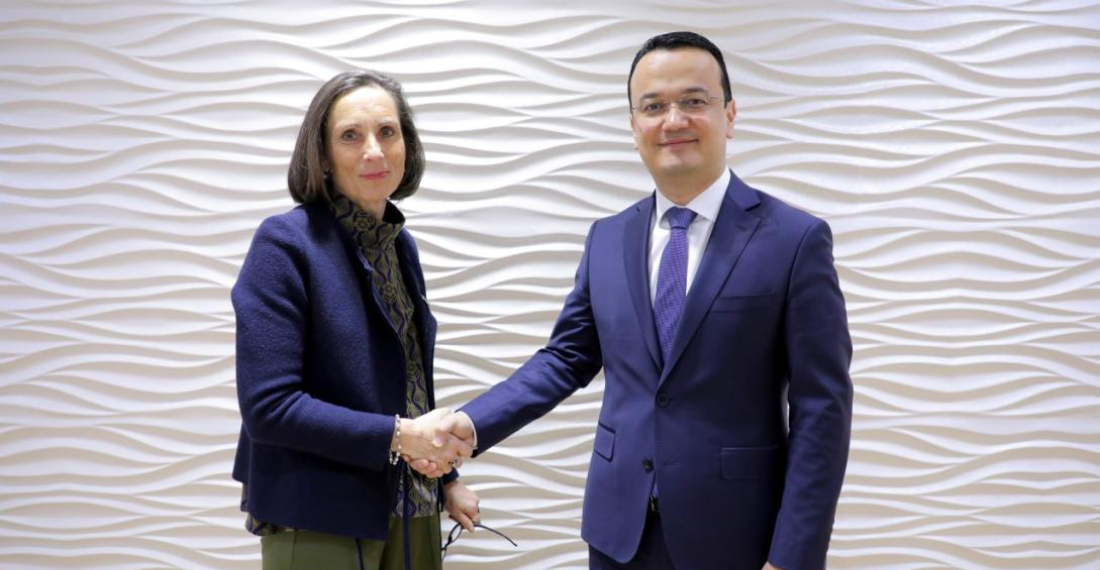The Uzbek Minister of Investments, Industry and Trade Laziz Qudratov hosted the head of the delegation of the EU in Uzbekistan Charlotte Adriaen on Monday (30 January) to discuss ways to advance bilateral ties in trade, economic and investment spheres.
The parties explored the opportunities for expanding the main areas of bilateral financial and technical cooperation, and discussed the EU's Multi-Annual Indicative Programme for Uzbekistan (MIP), the implementation of which has been allocated €76m for the period 2021-2024. Additional funds for the same time frame were also earmarked for Human Rights support (€3.6m), and Civil Society Organisation (€3.4m).
The MIP 2021-2027 has three main priorities, namely effective governance and digital transformation; inclusive, digital and green growth, and the development of a smart eco-friendly agri-food sector.
The parties also noted the increase in trade between the EU and Uzbekistan, which increased by 15.7% in 2022, reaching $4.4 billion. Germany, Lithuania, Italy, Poland and France are indicated as the top five trade partners of Uzbekistan from among the EU countries during this period.
At the meeting, the parties confirmed their intention to further expand cooperation in priority areas and to bring multifaceted bilateral relations to a new stage.







